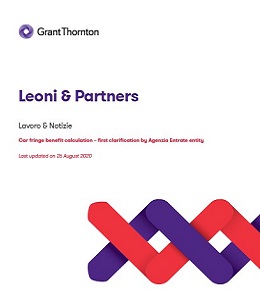-
Transactional advisory services
Find out more about the transactional advisory services of Grant Thornton Financial Advisory Services
-
Valuations
Find out more about the valuations services of Grant Thornton Financial Advisory Services
-
Mergers and acquisitions
Find out more about the merger and acquisition services of Grant Thornton Financial Advisory Services
-
Forensic and investigation services
Find out more about the forensic and investigation services of Grant Thornton Financial Advisory Services
-
Recovery & reorganisation
Find out more about the Recovery & reorganisation services of Grant Thornton Financial Advisory Services
-
Business risk services
Find out more about the business risk services of Grant Thornton Financial Advisory Services
-
Business consulting
Find out more about the business consulting services of Grant Thornton Financial Advisory Services
-
Capital market
Capital market
-
Corporate and business tax
Find out more about our corporate and business tax services.
-
Direct international tax
Find out more about our direct international tax services.
-
Global mobility services
Find out more about our global mobility services.
-
Indirect international tax
Find out more about our indirect international tax services.
-
Transfer pricing
Find out more about our transfer pricing services.
-
Litigation
Our lawyers and accountants can manage all defense measures provided not only by the Italian law, but also by EU regulations and conventions
-
Family business
Find out more about our Family business services.
-
Legal
The client can be assisted in every need and with the same care both on important operations or disputes and on simple matters

-
Back office outsourcing
Find out more about our Back office outsourcing services
-
Business process outsourcing
Find out more about our business process outsourcing services.
-
Compilation of financial statements
Find out more about our compilation of financial statements services.
-
Tax compliance
Find out more about our tax compliance services.
-
Electronic invoicing
Find out more about our electronic invoicing services
-
Electronic storage
Electronic storage is an archiving procedure that guarantees the legal validity of a digitally stored electronic document
-
Revaluation of corporate assets
Find out your civil and fiscal revaluation of tangible, intangible and financial assets
-
Human resources consulting
Find out more about our human resources consulting services.
-
Payroll
Find out more about our payroll services.
-
HR News
HR News the monthly information newsletter by Grant Thornton HR
-
Cybersecurity
GT Digital helps clients structure information security management internal functions, also through partially or totally outsourced functions
-
Agile and Programme Management
GT Digital provides support in the adoption and implementation of different portfolio management
-
Robotic Process Automation
Our “BOT Farm” can rely on digital workers able to help clients in routine activities, allowing employees to deal with more added-value activities
-
Data strategy and management
GT Digital can support clients in seizing the opportunities offered by Big Data, from the definition of strategies to the implementation of systems
-
Enterprise Resource Planning
We support clients in selecting the most appropriate ERP System according to their specific needs, helping them also understand licensing models
-
IT strategy
GT Digital supports clients in making strategic choices, identifying innovation opportunities, comparing themselves with competitors
-
IT service management
We can support with software selection and with the implementation of dedicated tools for the management of ICT processes
-
DORA and NIS 2
The entry into force of the DORA Regulation and NIS2 represents a major step towards the creation of a harmonised regulatory framework
The legislation has undergone some changes starting from 1 July 2020. Below is a brief overview of the new calculation rules and the first interpretations regarding their applicability by Agenzia Entrate entity.
Law provision
The new letter a) of art. 51 co. 4 TUIR, related to the rules about fringe benefits calculation, provides that the method of calculation of fringe benefits are done based on to carbon dioxide emissions for vehicles of new registration granted to employees for work and private purposes with agreements/contracts undersigned starting from July 2020, the 1st.
Specifically, fringe benefit will be equal to:
- 25% for vehicles with CO2 emission values not exceeding 60 g / km;
- 30% for vehicles with CO2 emissions above 60 g / km and up to 160 g / km;
- 40% for vehicles with CO2 emissions above 160 g / km and up to 190 g / km for the year 2020 (the latter percentage is raised to 50% for the year 2021);
- 50% for newly registered vehicles with CO2 emissions exceeding 190 g / km for the year 2020 (equal to 60% starting from the year 2021).
Not changes about the fringe benefit calculation for vehicles granted to employees for work and private purposes with agreements/contracts by June 2020, the 30th, which will remain equal to 30% of the amount corresponding to an annual conventional distance of 15,000 km calculated on the basis of the ACI cost per kilometre.
First interpretative clarifications
The new provision caused some interpretative doubts regarding the notion “agreements/contracts undersigned”, the notion of “new registration” vehicle, as well as regarding the provision applicable to old registration vehicles grated to employees after July 2020, the 1st.
First of all, the Agenzia Entrate entity clarified that the notion “new registration” must be considered to the motor vehicles, motorcycles and mopeds registered from July 2020, the 1st, not noting the date of entry into force of the “Bilancio Law 2020” (1st January 2020).
Second one, the AE entity specified that the moment of the signature of the agreement by which the employer granted the vehicle to the employee is the relevant moment in order to focus the notion “agreements/contracts undersigned starting from July 2020, the 1st”.
Therefore, in order to apply the new method of fringe benefit calculation, the essential requirements that must exist jointly are:
- the vehicle’s registration from July the 1st;
- the assignment of the vehicle by the employer from July 2020, the 1st.
Lastly, the AE entity addresses the cases in which the concession agreement of the vehicle is undersigned after July 2020, the 1st but the vehicle was registered before that date.
On this point, the Agency clarifies that the applicable tax regulations are to be found in the general principles governing the determination of employment income. Specifically, the benefit must be fiscally valued only for the part referable to the private use of the vehicle, motorcycle or moped, thus separating the use in the employer’s interest from its normal value.
Conclusions
Considering the first AE clarifications, no doubts about the application of the new provision for the fringe benefit calculation. The beneficiaries remain the vehicles registered and granted to employees starting from July 2020, the 1st.
For vehicles granted before, the applied provision will be the previous.
However, the calculation methods for those vehicles registered before 1 July 2020 but assigned to employees starting from that date are still unclear. According to the Agenzia Entrate entity, the calculation should follow the general principle of determining the normal value of benefit and services defined in art. 9 of the TUIR, separating the part of use for business purposes. Perhaps the rationale consists in encouraging the purchase of new, less polluting cars.
In any case, further explanatory clarifications from the Institute are awaited.

